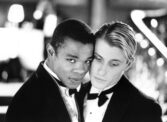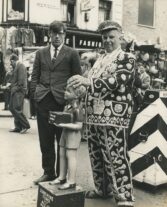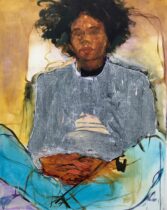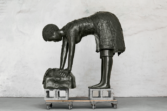
One of Julien’s aims in his work is to break down the barriers between different art forms like dance, film, poetry and so forth. So far this has been achieved and in doing so, Julien’s viewers are shown how to break down the perceived barriers of sexuality, class, culture and race.
Christabel Johanson on Looking for Langston of Isaac Julien
Looking for Langston, 1989, Courtecy the artist and Victoria Miro, London/Venice. Copyright the artist
First published: February 5,2022. Because of the Harlem Renaissance exhibition in The Met in New York, we publish the essay again.
Read more »






